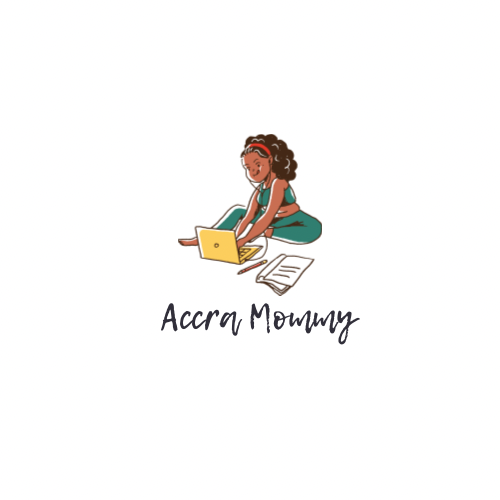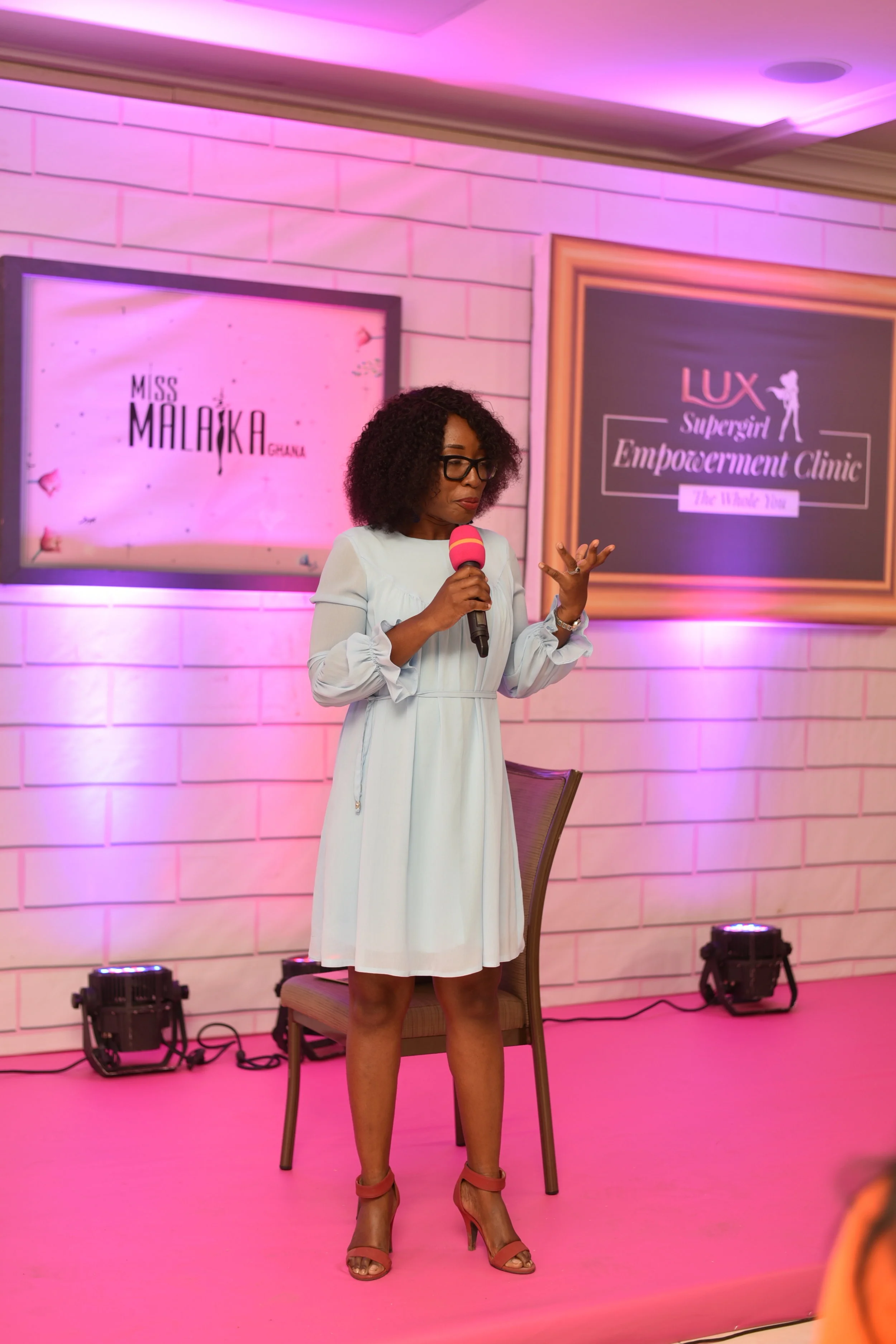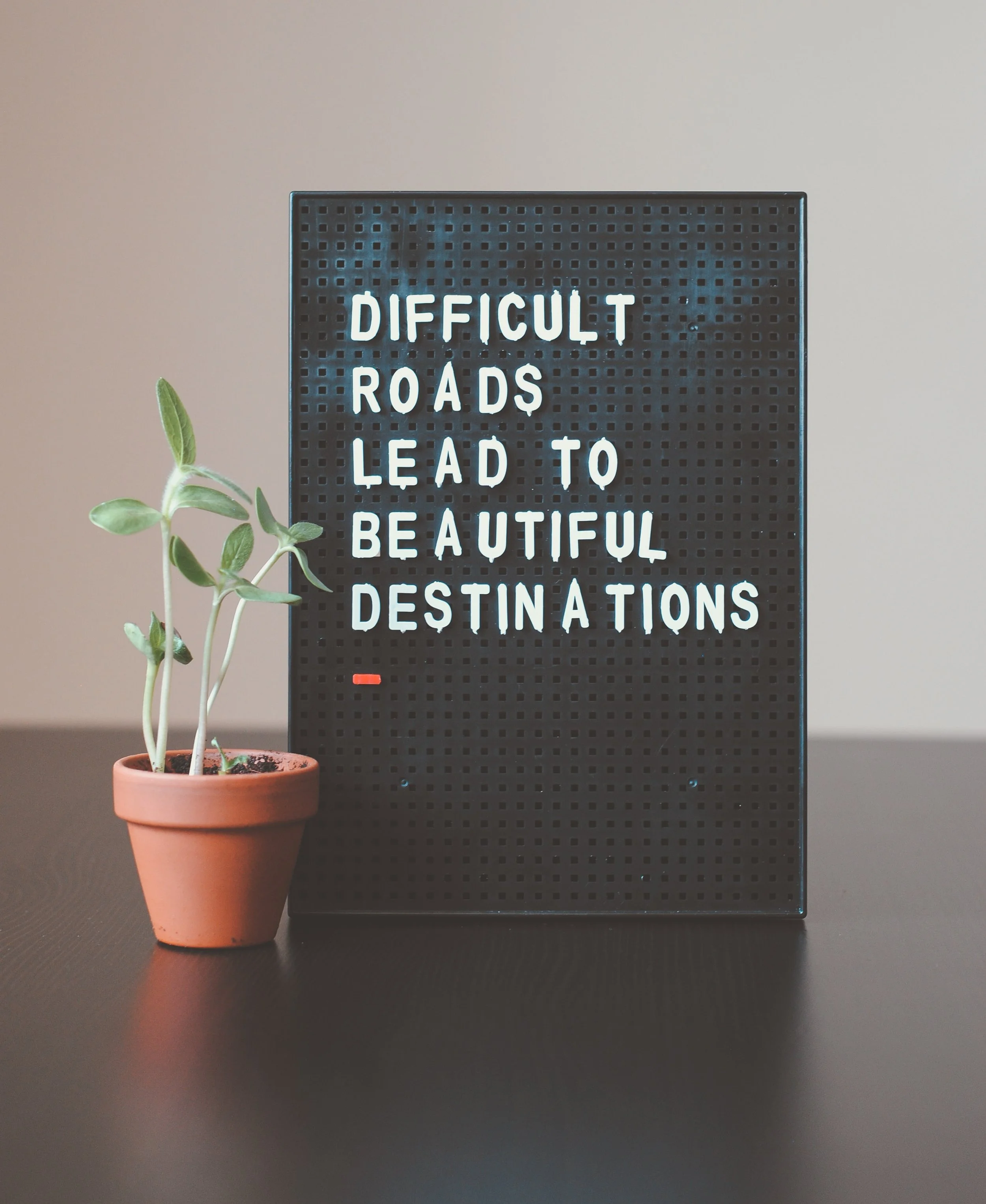What Self-Care Is & What It's Not - An E-Interview With Dr. Carol Mathias-O'chez
I recently had an e-interview session with Dr. Carol Mathias-O'chez a Psychologist who specialises in Educational Psychology and tweets a lot about mental health and self-care tips to an avid following ( myself included). She shares more about the importance of self-care ( what it is and what it's NOT) and mental health.
Naa Oyoo: Please provide a brief introduction of who you are and your profession.
Dr. Mathias: I am a young Ghanaian female psychologist who is fascinated by the human spirit and its ability to survive and flourish in the harshest conditions. I am passionate about helping people thrive in safe, authentic, judgment-free, solution-focused & professional spaces through my work as. I am passionate about sharing my own personal struggles & growth journey and using that together with (too many years in school) to help people discover, heal & grow.I am passionate about starting & engaging in open conversations about emotional & mental health awareness and care. I am passionate about de-mystifying therapy. I am very passionate about family, friends, good books, laughter, some reality TV, great conversations, vulnerability and growth. I am a psychologist who specialized in Educational Psychology. After spending 13 years in Atlanta working on a Bachelors, Masters and eventually a Doctoral degree, I moved back to Ghana in 2015 and jumped right into the mental health scene here.
Naa Oyoo: Awesome! So there's a lot of talk today about self-care and wholeness. Can you shed more light on what self-care means ?
Dr. Mathias: Self-care simply means you are taking care of yourself. Your “self” being made up of the physical, the mental, the emotional, and the spiritual. Self-care is an intentional and active choice to nourish yourself on all levels. Self-care also refers to intentionally practices and activities that reduce stress.
It is important to emphasise that self-care is an intentional and active choice. A lot of what we do as self-care is grooming, which is a part of a self-care. But self-care should also go deeper and tackle the not so pleasant things. Like figuring out why you are insecure? Why you are caught up in specific dysfunctional thought and behavior patterns?Understanding your individual needs and trying to honour them, so you can be the healthiest, most balanced and authentic self. Self-care also means holding yourself responsible for your thoughts, emotions, words, decisions and actions; even if they are a reaction to something or someone else, owning up to the toxic parts of yourself and acknowledging the role you play in creating some of your own problems.
Most people usually start paying attention to self-care after a particularly stressful period or event. However self-care isn’t something done in response to a crises or stressful event but should a mind-set, an integral part of our day to day lives.
Naa Oyoo: Why has self-care become a buzzword currently? Is it one of the usual healthcare marketing fads?
Dr. Mathias: Self-care has become such a strong buzzword currently because stress and fatigue levels have sky rocketed and are at all time high. There is so much demanding our attention and so much we have to get done. We live in a time where we glorify being busy, hustling and doing all you can to “level up”. Self-care is seen as response and way to tackle the high levels of stress and this has caused it to catch-on fast. Like most “new trends” once the ball starts rolling down the hill it is hard to catch.
We live in a time where we glorify being busy, hustling and doing all you can to “level up”
I do not believe that the current “self-care” trend we see is a FAD, in terms of it being short-lived. I do believe that more and more people will start to have a true appreciation of self-care beyond the “packaged” version of spa days and bubble baths that is currently being marketed and sold.
Naa Oyoo: Can you share more on what self-care IS NOT?
Dr. Mathias: aI am so glad you asked this question because we are starting to see a disturbing trend of people using self-care as a cover-up for unhealthy behavior. Self-care is not doing whatever you want at the expense of everyone else. Self-care is not throwing responsibility and reasoning out the window (I am going to take myself on a spa trip to Morocco and spend a bulk load of money on shoes because they make me feel good when my bills have not been paid and I am knee deep in debt). That is not self-care. Self-care is not excusing self-sabotaging and dysfunctional behavior, that is self-medicating. I dare say that feel good activities only such as spa treatments cannot be considered total self-care. Ultimately self-care is not an occasional event we do every Sunday or Saturday, neither is a response plan for a crises, self-care is a mindset or an attitude.
Naa Oyoo: How easily can self-care lead to self-sabotage?
Dr. Carol: Lets imagine that Yaa has been on a self-care journey and her focus has been on making sure she doesn’t overwork herself. She spends most of her time sleeping in, going to the spa, laying in her couch watching re-reruns of all her favourite shows and taking bubble baths. However Yaa is in the final year of her Masters program and has several deadlines to meet in order to graduate. She has a final project, presentation and paper to complete and her self-care routines are not allowing her to do this even though they help her relax and she is getting a lot of rest. Additionally, as part of her self-care choices she cuts off any friend or family member who tries to criticize how she is procrastinating.
Self-sabotage is generally defined as something that creates problems and interferes with long-standing goals. Yaa has crossed the line into self-sabotaging because her attempts at self-care are getting in the way of her meeting her goals. She has not truly understood the meaning of self-care.
Another way in which self-care can become self-sabotage is when we use self-care primarily as a way to revitalise us so that we’re able to work faster and harder. This is self-sabotaging because it is working faster which leads to stress, which we often try and address with self-care.vFinally self-care leads to self-sabotage when it is used as a mask to self-medicate or numb pain and hurt that we do not want to face.
Naa Oyoo: Depression is one of the major topics being discussed by mental health experts as a leading cause of suicide and other self-harming practices. How will a person know they are depressed or how do you as an expert identify a depressed patient?
Dr. Mathias: Depression is a mental illness characterised predominantly by a persistent feeling of sadness and a loss of interest. A mental health professional makes a diagnosis of clinical depression based on a set of criteria. You must be experiencing five or more of the symptoms below during a 2-week period and at least one of the symptoms should be either (1) depressed mood or (2) loss of interest or pleasure.
A depressed mood
Reduced interest or pleasure in activities previously enjoyed
Unintentional weight loss (without dieting) or low appetite
Insomnia(difficulty sleeping) or hypersomnia (excessive sleeping)
Psychomotor agitation, for example, restlessness, pacing up and down
Delayed psychomotor skills, for example, slowed movement and speech
Fatigueor loss of energy
Feelings of worthlessness or guilt
Impaired ability to think, concentrate, or make decisions
Recurrent thoughts of death or suicide, or attempt at suicide
Naa Oyoo: So what’s the difference between anxiety and depression?
Dr. Mathias: Depression is a mental illness characterised predominantly by a persistent feeling of sadness and a loss of interest and it falls under the category of a mood disorder. It is also called major depressive disorder or clinical depression and affects how we feel, think and behave. Additionally it can lead to a variety of emotional and physical problems. You may find doing normal day-to-day activities a challenge, and is often accompanied by feelings of despair and as if life isn't worth living.
Anxiety disorder on the other hand refers to specific mental disorders that involve extreme fear or worry that interferes with daily activities. These include generalized anxiety disorder, panic disorder, agoraphobia, and social anxiety disorder. These are the more common ones.
Naa Oyoo: I have read of anti-depressants prescription pills as one of the methods for the treatment of depression. Are anti-depressant pills not another strategy by pharmaceutical giants to profit off people by making them more dependent on these drugs in the long-term?
Dr. Mathias: This is a heavily debated question. As with all medication, there is a “for profit” aspect that we cannot deny. Anti-depressants were developed as a response for a condition that can be life-threatening and for many people they are what allow them to live with a disease that would otherwise largely inhibit their lives. Anti-depressants have long and short-term benefits however we also know there are critical drawbacks such as issues with intolerability, limited efficacy in milder depression and dependency like you mentioned.
I do not know if there is a definite yes or no answer to this question. I do know that the fields of psychiatry and psychology have over the years developed closer and more formidable ties with the pharmaceutical industry. We have fought for mental disorders to be regarded as equivalent to medical diseases and this has opened the door for drug treatments.It is important to stress that depression can be treated with other forms of treatment methods.
Naa Oyoo: What other treatment methods are there for treating depression?
Dr. Mathias: Different types of psychotherapy or psychological therapy, such as cognitive behavioural therapy or interpersonal therapy are used to effectively treat depressions. The focus of these therapy forms is multi-layered. To help
Identify negative beliefs and behaviours and replace them with healthy, positive ones
Explore relationships and experiences, and develop positive interactions with others
Find better ways to cope and solve problems
Identify issues that contribute to your depression and change behaviours that make it worse
Regain a sense of satisfaction and control in your life and help ease depression symptoms, such as hopelessness and anger
Learn to set realistic goals for your life
Develop the ability to tolerate and accept distress using healthier behaviour
Naa Oyoo: If a Christian man or woman decides to pray to God for help against the spirit of depression, should he also book an appointment to see a therapist?
Dr. Mathias:Yes he / she can most certainly do both. Faith (whatever your faith is) and science can work hand in hand. They don’t have to be mutually exclusive. As psychologists we know that faith plays an important role in the healing process: how well and fast people heal. Reaching out and seeking professional help is not an indication of a lack or reduction in faith. Think about it this way: could it be that God uses therapy to heal?
Naa Oyoo: As an avid Twitter user, can you share how social media today has impacted both positively and negatively on the mental health of young adults?
Dr. Mathias: This is one of the “hottest” hot button topics at the moment. One of the very positive impacts of social media is that it brings the world to your doorstep. This is especially important for mental health because it is characterized by a deep sense of loneliness. Social media allows young people to connect with young people who are struggling with the same mental health challenges. They can encourage each other, share stories, offer support for each other and create an online community of advocates.
There is often a disconnect between intentions & impact. Take ownership of the impact of your words & actions. Your intentions may be good but if it impacts someone negatively, own it, apologize & aim to do better. It will do wonders for your mental health:)
— Dr. Carol Mathias-O’chez (@Thrive__gh) October 14, 2018
Secondly, it’s important to remember that socialization is an important part of adolescent development and social media makes socializing easy and immediate. Particularly for young people who struggle with social skills or social anxiety, they benefit from connecting with other teens through social media.
However on the flip side we are seeing correlations between social media use and difficulty with issues such as self-image, self-esteem, discontent, toxic comparisons, sleep deprivation and these can affect a teenagers mental health. Additionally social media has become the new playground for bullying and this has led to some young people committing suicide.
Naa Oyoo: What self-care practices can you share for anyone out there who wants to start taking better care of themselves?
Dr. Mathias: Most definitely the basics: eating healthy, sleeping well, listening to your body and honoring it by giving it rest, exercising, finding your happy place, and it doesn’t have to be a physical place and going there often, so maybe getting lost in a good book or movie, or a great conversation with some of your favorite people.
However some of harder self-care stuff that don’t get as much buzz I believe are some of the most important. These include: checking in with yourself regularly: with your emotions, and your intentions and your motives. Saying no. Setting clear boundaries, enforcing them consistently. Maintaining healthy supportive relationships. Recognizing and accepting when you need help and asking for it.
Naa Oyoo: Thank you very much Dr. Mathias, this has been truly insightful for many people out there who are still in the dark on self-care matters. Thank you!
Dr. Carol Mathias-O'chez
Contact Information
Email: thrivegh@gmail.com
Phone number:0207997772
Twitter: thrive__gh
Instagram: thrive__gh







